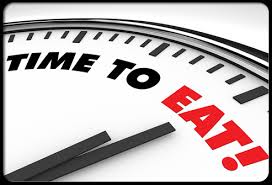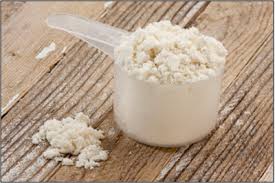Looking to get a jump on your recovery? While many athletes put great time and effort into finding the perfect workout program to use, few take the time to consider their recovery.
This is a shame because your success is directly limited by your rate of recovery. This is the time that occurs between your workout sessions when your body is hard at work repairing muscle damage and building your central nervous system back up stronger than it was before.
Since you can’t go back into the gym and train at full capacity until you are recovered, it’s in your best interest to be doing all that you can to optimize this. If you do attempt to train prior to being fully recovered, you could increase your risk of lean muscle mass loss, injury and inflammation.
In addition to performing stretching post-workout, taking some time out to do foam rolling, and getting a good night’s sleep, there are some smart nutritional steps that you should also be taking.
If you fail to feed your body the raw materials it needs to jumpstart the repair process, you’re failing to move forward as quickly as you could.
Let’s look at five nutritional steps you must take to improve your recovery.
Step 1: Time Your Meals Right
 You’ve just finished an intense workout session and your body is tired. Your muscles have been depleted and broken down and the first thing you feel like doing is crashing on the couch.
You’ve just finished an intense workout session and your body is tired. Your muscles have been depleted and broken down and the first thing you feel like doing is crashing on the couch.
Not so fast!
It’s time to refuel first. Timing your post-workout meal is critical to success because immediately following training, your body is especially sensitive to the carbohydrates and protein you feed it.
By eating within the first 15-30 minutes following exercise, you’ll get a faster nutrient uptake into the muscle cells. This means faster muscle rebuilding and rapid recovery.
Don’t delay this meal. If you can’t be home in time, pack something to bring with you to the gym.
Step 2: Eat Sufficient Carbohydrates
While you may be on a lower carb diet to promote fat burning, the post workout period is not the time to neglect this nutrient. Carbs are a must post workout as this is the only nutrient that can restore used muscle glycogen.
Your muscle glycogen is, in part, what powers you through every workout you do, so when it runs low, your intensity suffers.
Immediately post workout, your muscle tissues will soak up the glucose in the blood stream like a sponge, converting it into muscle glycogen. If you hold off eating carbohydrates until later (or worse, not at all!), your rate of replenishment of muscle glycogen will slow down dramatically.
Do keep in mind how many carbs you take in will depend on your goals as well as the type of workout you just performed. Someone weighing 170 pounds looking to build muscle who just did an hour of heavy lifting will need far more carbs than a 130 pound individual who did an easy run on the treadmill.
Scale your carbs accordingly.
In terms of the best sources of carbohydrates to consume, immediately following training, some sugar can actually be beneficial. While you should be avoiding sugar for the most part the rest of the day, at this time, spiking your blood glucose levels will kick-start the insulin release, that will then drive both the glucose and any protein you consume it with into the muscle cells.
Some good options for carbohydrates here would be a banana, some dates, prunes, or some white potato. Some people may also choose to use a powdered form of carbohydrate such as Karbolyn, which attempts to provide rapid muscle glycogen replenishment. If you do not tolerate solid food that well after training, this can be an excellent possibility to consider.
Step 3: Consume High Quality Protein
In addition to getting in a proper level of carbohydrates, you’ll also need to ensure you are consuming high quality protein as well.
 Protein provides the building blocks upon which muscle tissues are repaired and built. Ignore it at your own risk. If you want to get stronger, protein is a must.
Protein provides the building blocks upon which muscle tissues are repaired and built. Ignore it at your own risk. If you want to get stronger, protein is a must.
Studies illustrate that when protein is served post workout, superior improvements in performance and protein anabolism (growth) are experienced.
 A quality whey protein hydrolysate powder is ideal here as it’s most rapidly digesting by the body and will encourage faster recovery. If you combine this protein with carbohydrates, you’ll see even better results.
A quality whey protein hydrolysate powder is ideal here as it’s most rapidly digesting by the body and will encourage faster recovery. If you combine this protein with carbohydrates, you’ll see even better results.
If for whatever reason you cannot have protein powder, other quality but faster digesting sources of protein will also fit the bill here. Good options would include egg whites or white fish.
How much protein you need to consume again depends primarily on your body weight, training goals, and the workout just completed, but generally, studies have shown that around 20 grams post-workout can help to maximize protein synthesis rates.
Step 4: Follow Smart Hydration Principles
 Once you have your food intake covered, the next important step is making sure that you are hydrating properly. Chances are you’ve lost as significant amount of fluid during the training session and if this is not replenished, full recovery will not occur. Likewise, if you were exercising in a hot climate, you may have lost important electrolytes including sodium and potassium, which care should also be taken to replenish.
Once you have your food intake covered, the next important step is making sure that you are hydrating properly. Chances are you’ve lost as significant amount of fluid during the training session and if this is not replenished, full recovery will not occur. Likewise, if you were exercising in a hot climate, you may have lost important electrolytes including sodium and potassium, which care should also be taken to replenish.
If that is the case, hydrating with an electrolyte replacement beverage may be warranted. Otherwise, plain water will do the job nicely.
One excellent way to assess how much fluid you need to take in is to weigh yourself prior to doing the workout session and then again, immediately following. For every kilogram of weight that you’ve lost, you’ll want to take in around 1.2-1.5 liters of fluid.
Note that if you weigh yourself and find that you have lost more than 2% of your total body weight during the training session, you should also be taking care to hydrate better during the session as well.
Remember that hydration should be an ongoing process that takes place prior to the workout, during the workout, as well as after the workout is completed.
If you are using any pre-workout supplements that contain caffeine (or consuming other caffeine containing beverages to augment performance), you may need to drink a little extra fluid following the workout as caffeine does have dehydrating effects on the body.
Step 5: Plan Your Day Properly
 Finally, the last step to proper recovery nutrition is to make sure that you plan your day properly. Remember that recovery nutrition doesn’t stop right after your post-workout meal has been consumed.
Finally, the last step to proper recovery nutrition is to make sure that you plan your day properly. Remember that recovery nutrition doesn’t stop right after your post-workout meal has been consumed.
You’ll want to follow this meal or shake with another solid food meal consisting of proteins, carbohydrates, and dietary fats about one to two hours after. In this meal, carbohydrates may be reduced if you are looking to achieve fat loss. But, quality protein and some healthy fats should be taken in.
Your recovery will take place during the next 24 hours (or longer) until you hit the gym for your next workout, so do what you can to ensure that every meal is planned accordingly.
While your gym efforts may last only for one to two hours at most, your nutrition efforts need to be 24/7. You should always be considering all that you can do to optimize your recovery and fuel your body well.
If you do, you will be well rewarded as your performance reaches the next level.
References:
Rasmussen, Blake B., et al. “An oral essential amino acid-carbohydrate supplement enhances muscle protein anabolism after resistance exercise.”Journal of Applied Physiology 88.2 (2000): 386-392.
Tipton, Kevin D., et al. “Postexercise net protein synthesis in human muscle from orally administered amino acids.” American Journal of Physiology-Endocrinology And Metabolism 276.4 (1999): E628-E634.
Ivy, J. L., et al. “Muscle glycogen synthesis after exercise: effect of time of carbohydrate ingestion.” Journal of Applied Physiology 64.4 (1988): 1480-1485.
Moore, Daniel R., et al. “Ingested protein dose response of muscle and albumin protein synthesis after resistance exercise in young men.” The American journal of clinical nutrition 89.1 (2009): 161-168.

